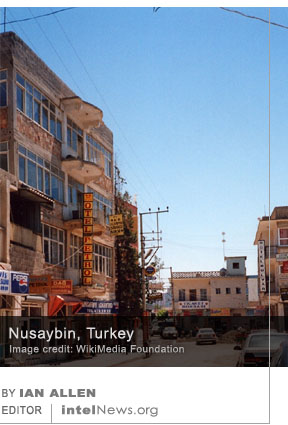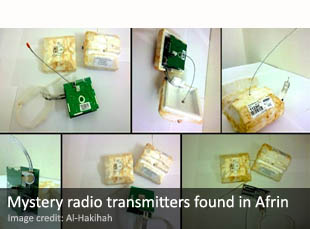Turkey launches investigation after explosive found under Erdoğan guardsman’s car
December 6, 2021 1 Comment
 TURKISH AUTHORITIES HAVE LAUNCHED an investigation after a makeshift explosive device was found under the car of a police officer guarding an open-air speech by President Recep Tayyip Erdoğan. The rally took place on Saturday in Siirt, a Kurdish-majority town located about 90 miles from the Turkish-Syrian border. The town has a symbolic significance for Erdoğan, as it is the hometown of his wife, Emine Erdoğan, and was his constituency for four years. In 2003 he won a by-election there and entered the Turkish Grand National Assembly as a member.
TURKISH AUTHORITIES HAVE LAUNCHED an investigation after a makeshift explosive device was found under the car of a police officer guarding an open-air speech by President Recep Tayyip Erdoğan. The rally took place on Saturday in Siirt, a Kurdish-majority town located about 90 miles from the Turkish-Syrian border. The town has a symbolic significance for Erdoğan, as it is the hometown of his wife, Emine Erdoğan, and was his constituency for four years. In 2003 he won a by-election there and entered the Turkish Grand National Assembly as a member.
According to pro-government Turkish media, the makeshift bomb was affixed to the undercarriage of a private car. The car belongs to a police officer in the city of Nusaybin (pictured), in the province of Mardin, which is situated on the Turkish-Syrian border. The explosive device was detected by a bomb squad on Saturday morning, as the police officer was preparing to depart for Siirt, where he was going to help secure an outdoor rally by Erdoğan. The purpose of the rally was to gather support for the embattled Erdoğan, as the Turkish economy is undergoing its most serious recession in a generation.
Turkish media said that a specialist bomb squad was dispatched to Nusaybin upon the discovery of the device, and defused it “in a controlled manner”. Later that day, Erdoğan began his speech at the rally in Siirt by mentioning the discovery of the device, saying that the “defeats suffered by the terrorists” were bound to prompt “confessions of treachery and meanness”, which will be “revealed in time”. Southeastern Turkey, where Siirt is located, is a stronghold of the Kurdistan Workers Party (PKK), an armed secessionist group that Turkey has been battling for nearly 40 years.
► Author: Ian Allen | Date: 06 December 2021 | Permalink


 By IAN ALLEN | intelNews.org |
By IAN ALLEN | intelNews.org |









